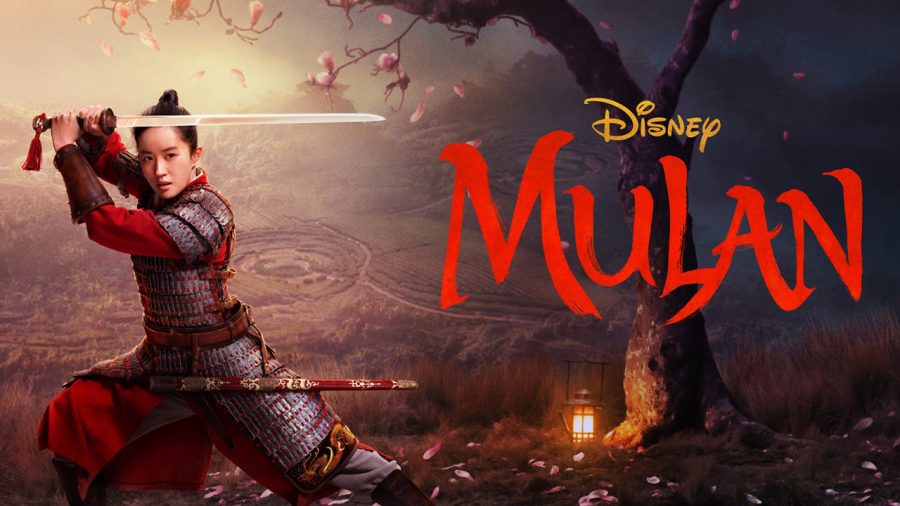Boycotting the New Mulan Movie
October 18, 2020
Live-action adaptations of classic Disney movies are usually well-received by audiences, but the release of “Mulan” generated poor reviews from the general public. Disney suffered a multimillion-dollar loss from the costly production and low box office revenue of its latest movie addition.
The original “Mulan” was groundbreaking for Disney. Mulan was the first princess who differed from the Eurocentric princesses the company had stuck to since their creation. She was an important figure to many young Asian-American children, as they finally got to see someone on screen who looked like them. Mulan also paved the way for the future heroines of Disney: including Anna and Moana.
Mulan strayed from the traditional means of the physical appeal of every other Disney princess. Her heroism was based on her devotion to family and sole determination, while physically masking her feminine appearance.
The original “Mulan”, released in 1998, played a crucial role in many children’s lives. Given the original’s developmental impact upon millions of Asian-Americans, the new and not-so-improved adaptation was a letdown. The removal of key characters, modification of the storyline, and lack of Asian representation behind the camera greatly contributed to the general audience’s disappointment.
In order to adapt “Mulan” into a more realistic story, Disney made the decision to remove Mushu, the beloved dragon, and Li Shang, the army leader, and Mulan’s love interest, from the new release. Apart from Mulan herself, these two characters made the 1998 version appeal to the audience. Removing them did not play in favor of Disney.
Asian-American audiences, especially those residing in or from Hong Kong strongly disapproved of the female lead playing Mulan. Due to her gargantuan fame in China, Liu Yifei has expressed her support for the Chinese police and her distaste for the protesters in Hong Kong. She may believe differently, but it is difficult for an influential public figure in a communist country to speak against the government.
Hong Kong was under British rule starting in 1841 but was handed back to China in 1997. China is a communist country and many citizens of Hong Kong were displeased with the transfer of sovereignty, to say the least. Since the introduction of the Fugitive Offenders Bill to Hong Kong in 2019, there have been constant violent protests across the small island. Liu’s support of the aggressive actions taken by police to combat the protesters is well received by the Chinese government, but not so much by the rest of the world.
The on-screen cast had many legends like Donnie Yen and Jet Li but in the eyes of many Hong Kongers, Liu Yifei ruined the lineup. Not only were audiences disappointed by the on- screencast, but also the crew behind the camera. Disney chose to hire an all-white production crew. Even the costume designer was not of Asian descent.
This forced many, including Darnell Hunt, dean of the UCLA College of Social Sciences, to ask “Are we actually seeing systematic change [in the entertainment industry], or is Hollywood just appealing to diverse audiences through casting, but without fundamentally altering the way studios do business behind the camera?”
“Mulan” is one of many attempts made to diversify the entertainment industry. To see a fundamental change both on and off-screen, viewers can do nothing but promote movies and tv shows that truly represent minorities.
